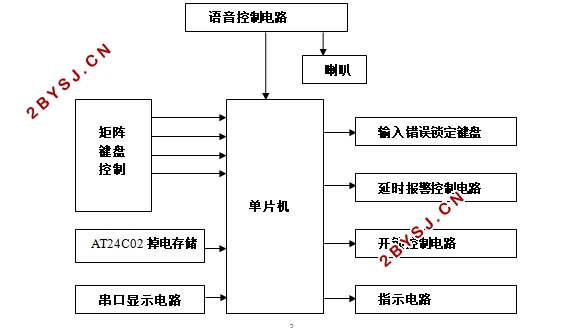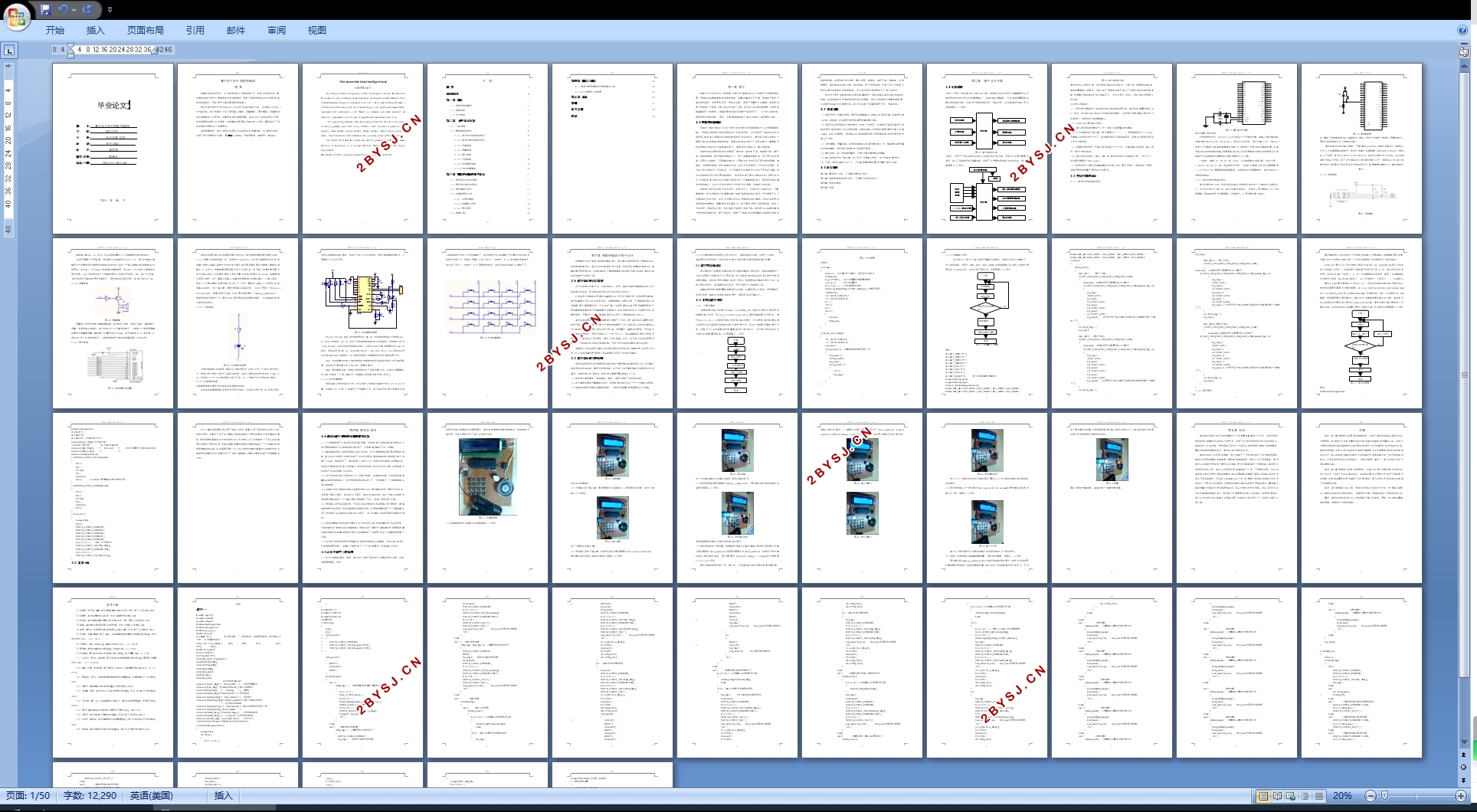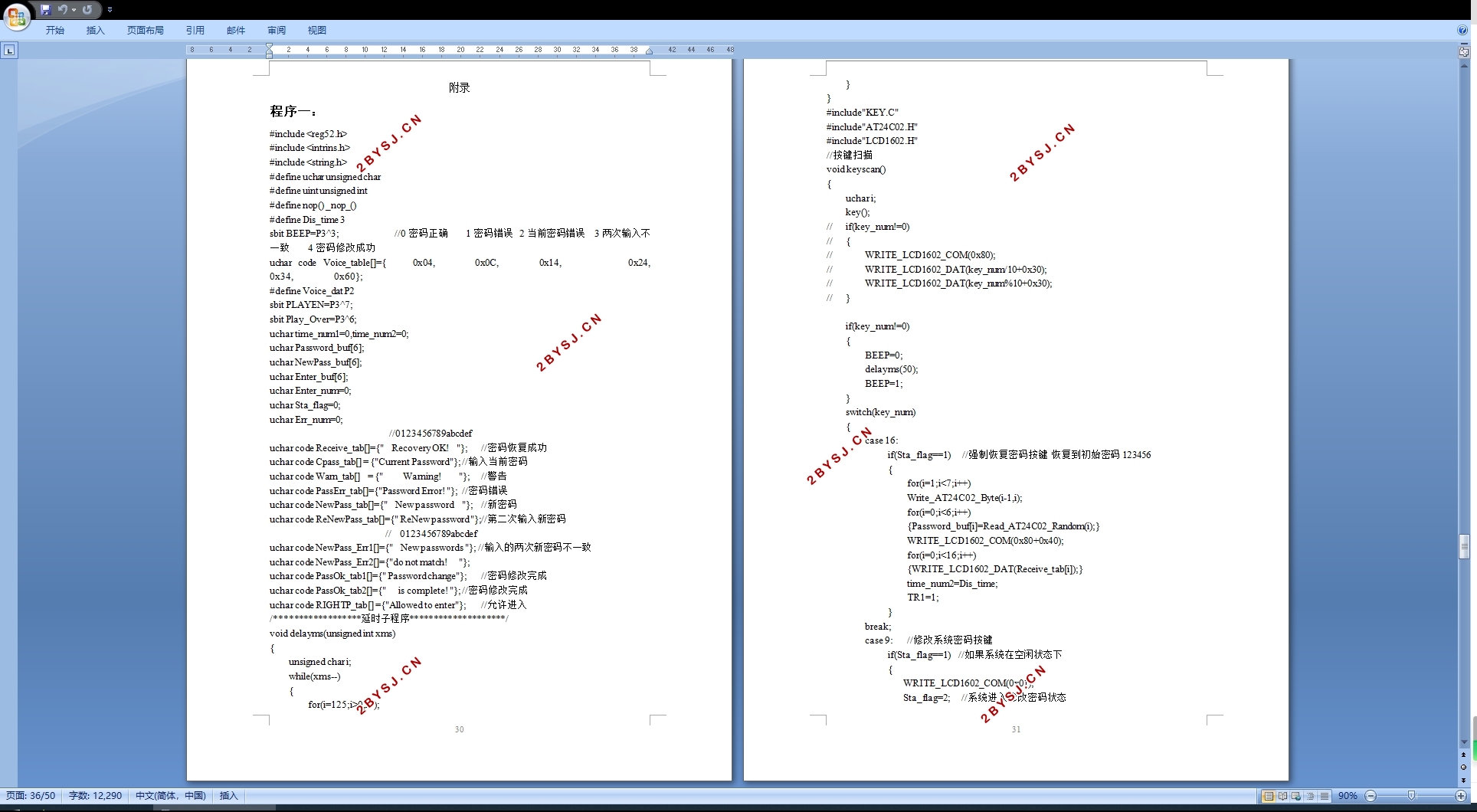基于单片机的智能密码锁的设计
无需注册登录,支付后按照提示操作即可获取该资料.
基于单片机的智能密码锁的设计(任务书,开题报告,外文翻译,论文11000字)
摘 要
随着社会科技的进步,安全信息系统应用越来越广泛,特别在保护机密、维护隐私和财产保护方面起到的作用越来越大,而基于智能密码锁的安全系统是其中的组成部分,因此研究它具有重要的现实意义
本论文首先提出采用ISD1420芯片进行语音控制的方案,并选择AT89S52作为单片机。接下来重点讨论了密码输入模块、报警模块、显示模块、存储模块和语音模块的工作原理、元器件选择及参数设置。其次讨论了软件的设计过程,包括软硬件协调工作的原理、功能模块流程图以及相应核心代码。最后给出了系统的调试过程和运行效果展示。
测试结果表明,本文所设计的系统可以实现防盗报警功能,语音提示功能,达到了设计所要求的功能。
关键词:AT89S52 智能密码锁 语音提示 ISD1420
Microcontroller-based intelligent locks
ABSTRACT
This design is based on single-chip control of intelligent code lock, the reason for this purpose is now increasingly high popularity of intelligent systems, features of this software/hardware design of intelligent code lock is: try to meet system performance of these rules reduce the possibility of system design costs. higher-performance MCU implements the combination lock feature on. Because individual modules are relatively independent, low cost, ease of upgrades and maintenance and so on.
This paper first presented in this article adopts ISD1420 chip for voice control of the programme, and select using AT89S52. Next focused on password input module, alarm module, display module, storage module, module design process in detail. Then discusses how the software works, processes, as well as the core code.
Test results show that the system can achieve guard against theft and alarm function of the design, voice prompt function, functions that meet the design requirements.
Key word: AT89S52; intelligent password lock; voice prompt; ISD1420



目 录
摘 要 I
ABSTRACT II
第一章 绪论 1
1.1智能密码锁概述 1
1.2 基本功能 2
1.3论文结构 2
第二章 硬件设计方案 3
2.1方案选择 3
2.2 模块电路的设计 4
2.2.1单片机时钟电路的设计 4
2.2.2 单片机复位电路的设计 5
2.2.3存储电路 6
2.2.4报警电路 7
2.2.5 显示电路 7
2.2.6开锁电路 8
2.2.7语音播报电路 8
2.2.8 矩阵按键模块 9
第三章 智能密码锁的软件设计 11
3.1 程序设计的语言选择 11
3.2 程序设计遵守的原则 11
3.3 程序模块化设计 12
3.4 各模块程序介绍 12
3.4.1主程序模块 12
3.4.2按键输入代码 14
3.4.3显示程序 16
3.5 本章小结 18
第四章 测试与调试 20
4.1调试过程中遇到的问题和解决方案 20
4.2 运行在硬件上的结果 20
第五章 总结 26
致谢 27
参考文献 28
附录 29
